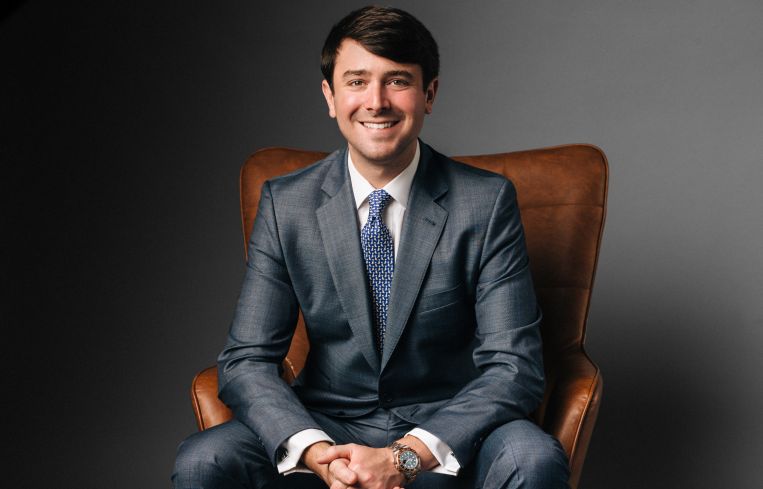Presented By: Cooper Horowitz
Speaker Spotlight: Justin Horowitz of Cooper Horowitz
By Cooper Horowitz August 21, 2025 3:16 pm
reprints
Justin Horowitz, a Capital Markets Advisor and Senior Managing Director at Cooper Horowitz. He has facilitated over $2.5 billion in financing across 29 states. Cooper Horowitz remains a leading force in the Commercial Real Estate Finance industry, consistently securing financing for many of the nation’s top real estate investors and developers.
What is investor sentiment for the industrial sector, and where does Industrial Outdoor Storage (“IOS”) fit into this?
My favorite IOS buzzword is Mission Critical. That’s exactly what industrial has been for decades. Industrial tenants are seeking sites that are mission critical to their business and supply chain, whether it be by a major port, interstate, or large transportation nodes serving large MSAs. E-commerce growth, reshoring, and infrastructure investment keep investors coming back. These are mission critical facilities that are often secured by long term, creditworthy tenants that have annual increases on a NNN basis. IOS is exactly that. What was once a throw-in on an industrial deal has become its own asset class. Industrial boxes are being built on spec whereas IOS is hard to come by. No one is building it and towns don’t want more of it, so it’s econ 101: supply & demand. Tenants desire mission critical sites that are zoned properly, and investors desire these sites because they are less capex intensive, tenants are signing the same NNN leases as industrial, and IOS supports e-commerce, infrastructure, construction, logistics/transportation and many other parts of the economy.

What initiated the rise of the IOS sector in recent years and what is driving the demand for this quickly growing market?
IOS isn’t new – it’s been an asset class for generations. We only put an acronym on it in recent years. Covid had a major part in its rise, and there are so many entrepreneurs starting their own funds / companies to invest in the space. There are several surges that lead to IOS demand. Infill Scarcity: there is limited availability of entitled land, especially with IOS-friendly zoning. Zoning Requirements: municipal pushback against IOS has led to severe supply constraints and long entitlement timelines. Supply Chain Pressure: IOS is mission-critical for staging, storage, & overflow in a logistics system that is optimizing for speed and flexibility. Infrastructure & Construction Cycles: major government infrastructure investments are creating sustained demand from contractors & suppliers. Fleet & Equipment Growth: waste, recycling, utility, & energy service providers all require secure, flexible IOS locations. And E-Commerce Expansion: growth in last mile & same-day delivery has increased need for fleet yards, trailer storage, and local laydown space. But most important – these sites are mission critical to the tenants that occupy them. Additionally, major US ports continue to handle high container volumes with key hubs like LA, Long Beach, Newark, Savannah, and Houston recovering from pandemic-era volatility and returning to long-term growth trajectories.
Where do you see the greatest opportunity for investors looking to get their foot in the door? How are other industrial sectors supporting IOS growth?
I don’t want to give away any secret sauces, but competition is heavy. There are so many of my friends and clients that have dedicated time, money, and resources to building out incredible platforms that are solely dedication to IOS, so new investors are already facing an uphill battle. Zoning and environmental are incredibly important when analyzing an IOS deal, so make sure you have top experts in respective fields that can advise you properly. IOS tenant profiles range from logistics and trucking firms (think XPO, UPS, and FedEx), construction & infrastructure companies (think ABC Supply), waste & recycling operators (think Waste Management), equipment rental & service companies (think Herc, United Rentals, & Sunbelt), energy & utility providers (think PSEG & ConEd), vehicle & fleet storage users (think Amazon, DHL, & Verizon), and ports, rails, & intermodal adjacent users (think ConGlobal). It’s a fascinating ecosystem that I am proud to dedicate my career towards!



